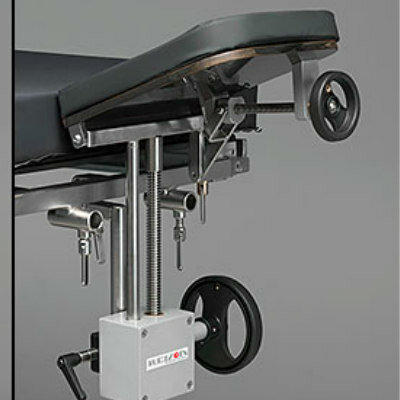Ovary Removal Cuts Breast Cancer Mortality Risk
By HospiMedica International staff writers
Posted on 06 May 2015
Women with BRCA-positive breast cancer had a significantly lower risk of dying after prophylactic bilateral oophorectomy, according to a new study.Posted on 06 May 2015
Researchers at McGill University (Montreal, Canada), the Women’s College Research Institute (WCRI; Toronto, ON, Canada), and another 12 institutions conducted a retrospective study of 676 women with stage I or II breast cancer and a BRCA1 or BRCA2 mutation, followed for up to 20 years (after receiving a diagnosis between 1975 and 2008) to estimate the impact of oophorectomy on survival. Survival experience was compared for women who did and who did not undergo oophorectomy, with the primary endpoint being death due to breast cancer.
In all, out of the 676 women, 345 underwent oophorectomy after the diagnosis of breast cancer, while 331 retained both ovaries. The results showed that the magnitude of benefit for ovary removal was 43% for carriers of BRCA2 carriers, and 62% for carriers of BRCA1. Risk reduction jumped to 93% for estrogen receptor-negative breast cancers, which account for a majority of BRCA1-positive breast cancers. The study was published early online on April 23, 2015, in JAMA Oncology.
“In this study, we confirm that women with breast cancer and a BRCA1 mutation improve their prognosis if they undergo oophorectomy, and that the protective effect of the oophorectomy persists beyond age 50 years,” said lead author Steven Narod, MD, of WCRI, and colleagues. “In previous studies, we have shown that oophorectomy reduces the risk of both ovarian and breast cancers, and we now report that the benefits of oophorectomy include a reduction in the risk of breast cancer mortality.”
The risk of developing breast and ovarian cancer is greatly increased if a woman inherits a mutation in the BRCA1 or BRCA2 gene, which produces tumor suppressor proteins. Together, BRCA1 and BRCA2 mutations account for about 20%–25% percent of hereditary breast cancers, and about 5%–10% of all breast cancers. Several study groups have recommended prophylactic salpingo-oophorectomy for BRCA carriers at age 35 or older to reduce the risk of breast and ovarian cancer.
Related Links:
McGill University
Women’s College Research Institute














